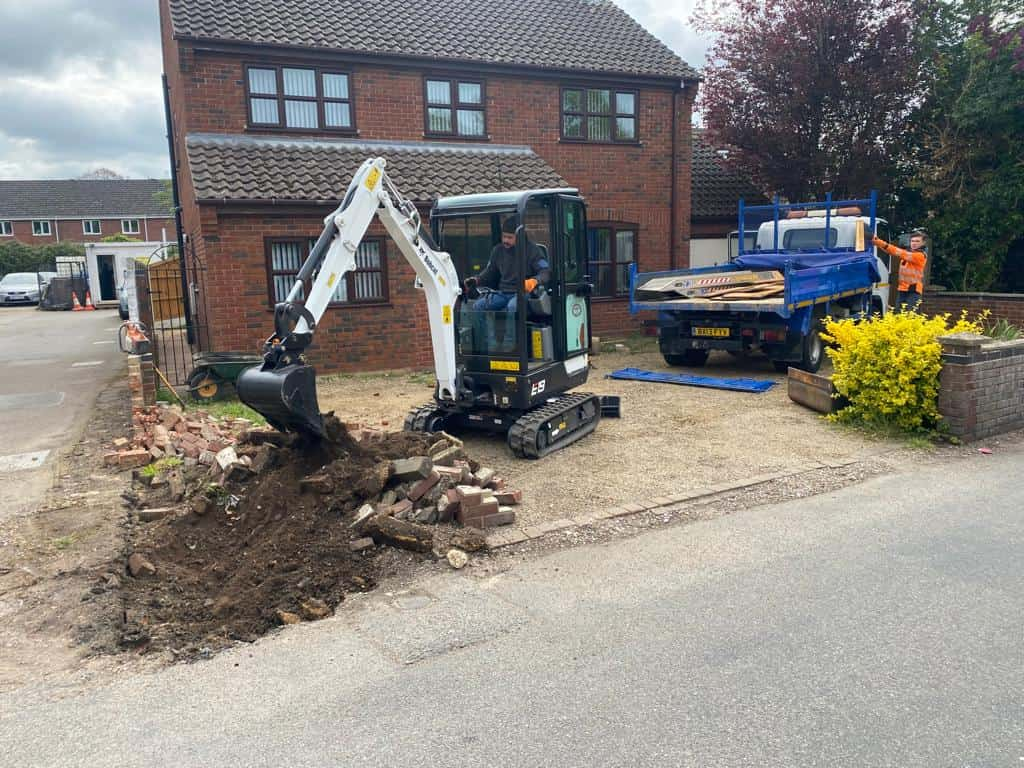The Role of Tarmac in Sustainable New Build Construction
Introduction: In an era where sustainability and eco-friendliness are at the forefront of construction practices, the choice of materials plays a pivotal role in shaping the environmental impact of new build projects. Tarmac, known as asphalt or bitumen, has been a cornerstone of construction for its durability and versatility. However, beyond its functional attributes, tarmac offers significant potential for sustainable new construction. In this blog post, brought to you by Watton Driveway Solutions, we will explore the key aspects of how tarmac can contribute to sustainable building practices.
- Recyclability and Reusability
One of the most notable sustainable features of tarmac is its recyclability. Tarmac is one of the most recycled materials globally. During reclamation, old and worn-out tarmac can be collected, crushed, and reprocessed into new asphalt mixtures. This conserves valuable natural resources, reduces the demand for virgin materials, and lowers the carbon footprint of new construction projects.
- Energy Efficiency
Tarmac production and installation are known for their energy efficiency compared to many other paving materials. Tarmac can be manufactured at lower temperatures, reducing energy consumption during production. The lower energy requirements contribute to a decrease in greenhouse gas emissions, aligning with sustainable construction practices.
- Durability and Longevity
Sustainability is not only about the materials used but also about their lifespan. Tarmac is renowned for its durability and long service life. When properly installed and maintained, tarmac driveways, roads, and pavements can last decades without frequent repairs or replacements. This longevity reduces the need for new construction and minimises waste.
- Reduced Heat Island Effect
The heat island effect occurs in urban areas where surfaces absorb and retain heat, leading to elevated temperatures. Tarmac can contribute to reducing this effect due to its lighter colour, which reflects more sunlight and heat compared to darker materials like asphalt or concrete. This leads to cooler and more energy-efficient environments in urban settings.
- Stormwater Management
Properly designed tarmac surfaces can be engineered to facilitate stormwater management. Sustainable construction practices include incorporating permeable tarmac solutions that allow rainwater to pass through the surface and infiltrate the ground. This reduces surface runoff and the risk of flooding, contributing to environmentally responsible construction.
- Low Maintenance
Sustainable construction practices also consider the long-term maintenance requirements of materials. Tarmac is known for its low maintenance needs, requiring fewer resources and less energy for upkeep than other paving materials. Reduced maintenance translates into cost savings and a lower environmental impact over the project’s life.
- Eco-Friendly Sealants
The choice of sealants and adhesives used in tarmac construction is crucial for sustainability. Many eco-friendly sealants emitting fewer volatile organic compounds (VOCs) are available for tarmac applications. These sealants minimise air pollution and contribute to a healthier environment.
Conclusion: Tarmac is not just a functional and cost-effective paving material but also a sustainable choice for new construction projects. Its recyclability, energy efficiency, durability, and ability to mitigate the heat island effect make it an environmentally responsible option. When used with sustainable construction practices, tarmac can play a pivotal role in reducing the environmental impact of new build projects.
Call us on: 01953 660 780
Click here to find out more about Watton Driveway Solutions
Click here to complete our contact form and see how we can help with your driveway needs.

